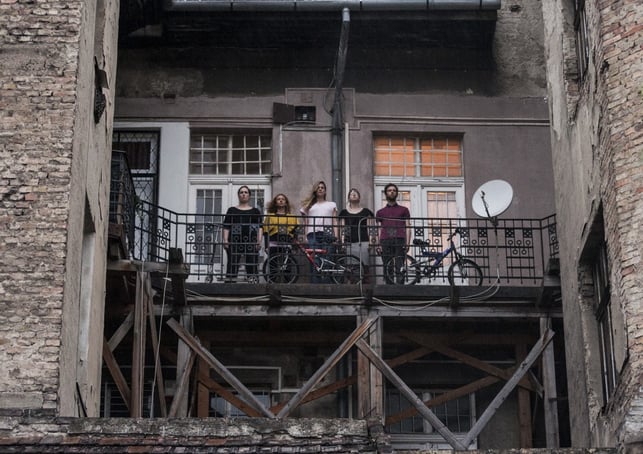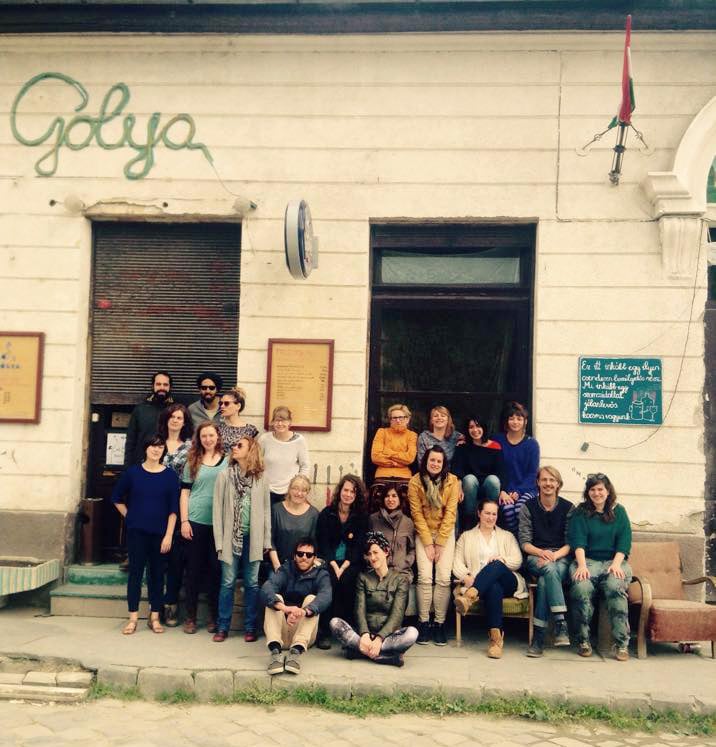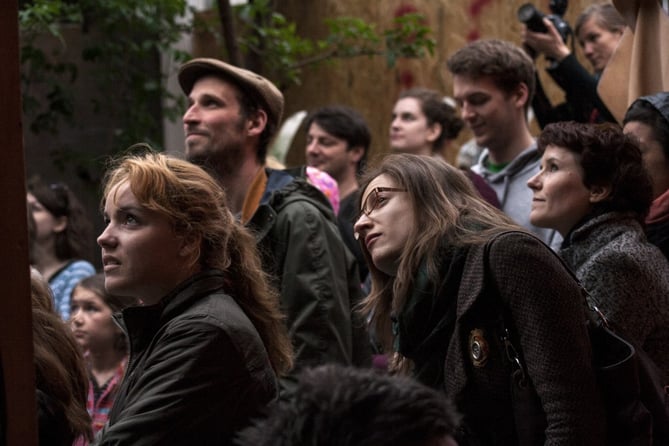Site-specific Theatre and Erasmus+
Makeshift Ensemble is a Cork-based theatre company developing collaborative theatre, using non-actors and strongly defined spaces. In this week's blog Eszter Nemethi talks about their Erasmus+ Strategic Partnership, IN SITU, and how youth workers from Ireland, Hungary, Serbia, Czech Republic, France and Italy brought site-specific theatre to the streets of Budapest.
"Site-specific theatre, and particularly its use in a socially engaged artistic context, is a very exciting tool to use. It has the potential, through its direct engagement with space and local context, to enable young people to re-imagine their situations, take ownership of their surroundings and discover hidden possibilities within themselves and their neighbourhoods.
The Erasmus+ training had two segments. The first involved an online part-time pre-departure training conducted via artescommunity.eu which took place from 23 March to 3 April. The second was an eight-day long residential training in Budapest, Hungary from 11 to 18 April. Full participation in both elements was mandatory as the online training served as a base for the residential component.
The training brought together trainers and participants from different backgrounds to use IN-SITU as a platform for peer learning, where those involved could share international practice and foster collaboration. The training had multiple outcomes in methodology, projects and the professional development of the participants. The residential training was facilitated by Belgian dramaturge Bart Capelle and Hungarian director Marta Schermann with support of organisers from Artemisszio Alapitvány and Makeshift Ensemble.
20 Youth workers, activists and theatre artists who work with young people or in another social context participated, from Hungary, Ireland, Serbia, Czech Republic, France, and Italy. All the participants had an interest in working with urban communities. The training was designed for people with some prior experience who would like to expand their skills and combine innovative theatre approaches with youth or social work to expand their tools and their possibilities in both fields.
The venue was Gólya, a community-based pub and social centre in the 8th district, the most multicultural and at the same time marginalised district of Budapest. The place and the neighbourhood served as the site where the group could experience the methodology and investigate and observe the process of gentrification. It is a very current issue there – local poor people being forced to leave their communities by “pushing them out” in various manners, while, at the same time, there are good initiatives such as the creation of alternative communities like Gólya cooperative.
Parachuting an international group into the midst of this volatile, sensitive and rich context allowed the group a vivid insight into many issues that they might face using site-specific theatre as a tool within their own work. There were rapid changes afoot with huge construction sites all around our working spaces. We developed a programme to bring the participants through a condensed and intense journey through the various stages of the creation of a piece of site-specific theatre performance; from the early stages of research, through idea generation and finally a public performance. All along the project kept a balance between learning new methodologies, reflection, theoretical input, visits to local groups and practical tasks that encouraged peer-to-peer learning among a very diverse group with various expertise in the fields of art, social work, youth work and activism.
Some members of the Collective for Critical Urban Research made a presentation and a discussion to understand the local context with the participation of members from Gólya. We visited a local Roma youth club. We hosted a coffee afternoon where we invited the neighbours. We did various studies of the area using anthropological and artistic methodologies to form the basis of the creative enquiry. We presented a public promenade performance in the buildings, streets and empty plots around Gólya followed by a Q&A about the project and the process. Importantly each day we came together in small groups to reflect which was a crucial time of calm within a very intense training schedule.
The participants learned about collaboration across sectors; the challenges and opportunities in working in an urban public space; approaches to site-specific theatre; the use of site-specific methodology with young people as well as an understanding of an anthropological approach to public space. The participants developed their own solutions and methodologies during the training, appropriate to their individual backgrounds based on a question-based study process.
The training was the first close collaboration between Makeshift Ensemble in Ireland and Artemisszio Alapitvany in Hungary, but we have been working together since, meeting often as part of the Firestarter Network. This meant that communication among the organising team from the two organisations and also among the rest of the partners of the project was easy and effective."
For more about IN SITU watch this short video:
We welcome contributions to 'Insights' at comms@leargas.ie.



